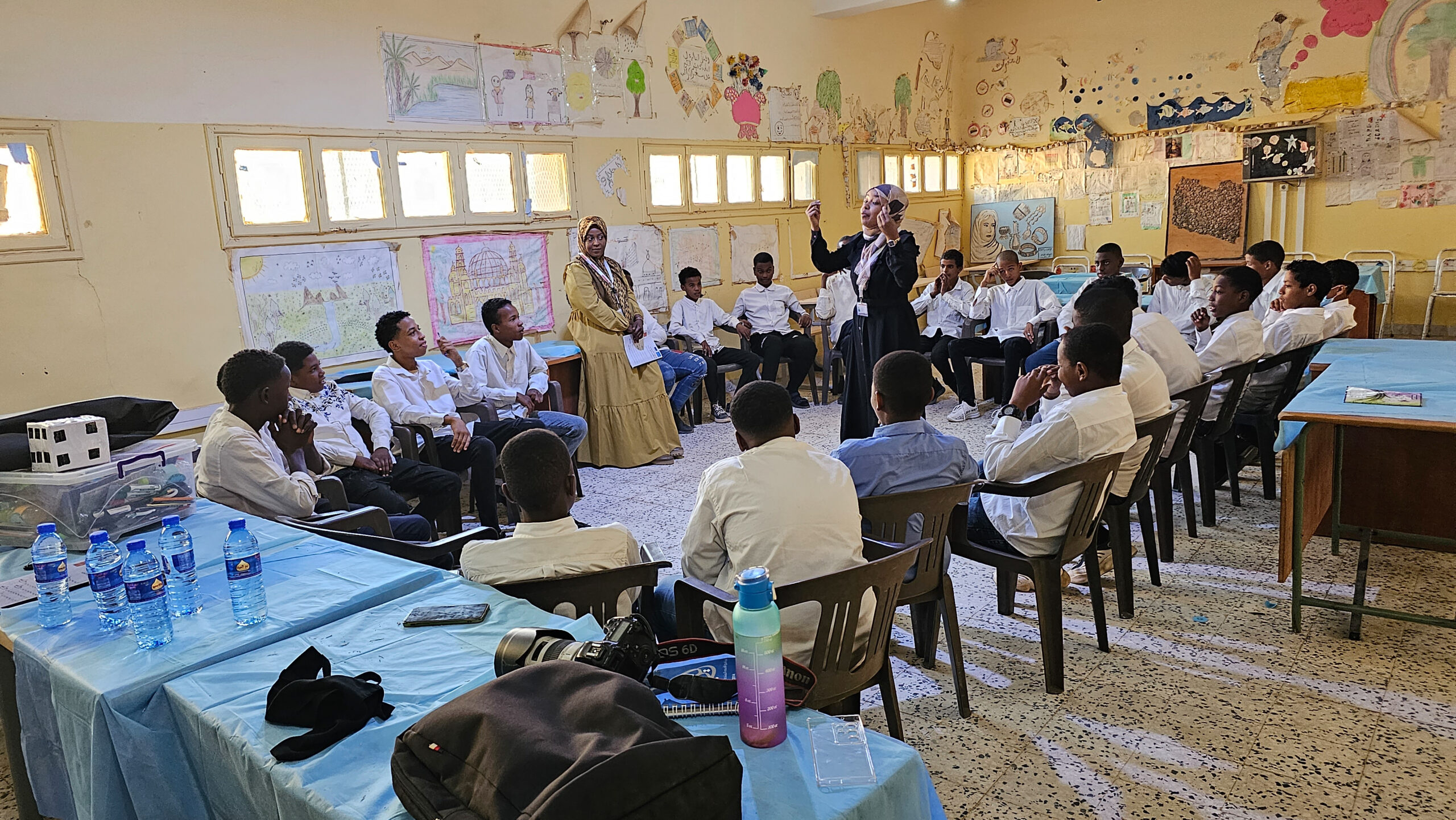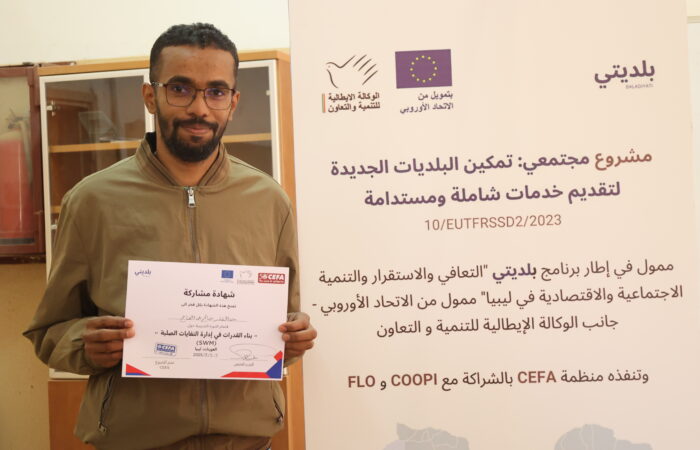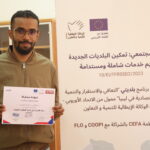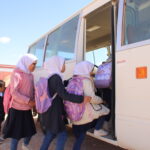“When I play the games in the Life Skills class, I learn about respect, cooperation, and how to be a good friend,” shares Shahid Mohammed Bashir, a 14-year-old student in the Life Skills programme in Ghat, Libya.
Under the support of UNICEF Libya and funded by the EU through “Baladiyati” initiative, this program has become a transformation for adolescents in Ghat. It’s not just a curriculum; it’s a journey of self-discovery and growth.
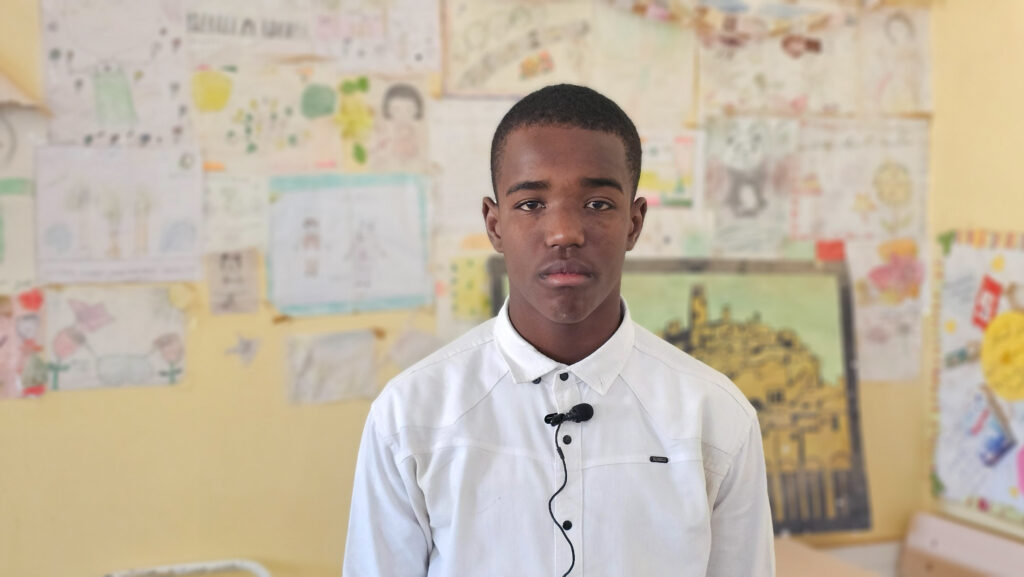
“The program changed how I see my future. . I used to want to be a medical technician, but now, I aspire to be a specialized doctor, and help people in a bigger way.”
Shahid, one of many youths benefitting from the program, speaks of its impact.
In the space between Shahid’s dreams and the current moment, the Life Skills program serves as a bridge. It’s in these sessions that the seeds of ambition are sown and nurtured. Here, the students learn to evaluate their aspirations against their values and the needs of their community. The exercises encourage them to visualize their future roles not just in terms of personal success, but how they can contribute to society’s greater good. This shift from a personal to a communal perspective is critical, marking the transition from simple career aspirations to a life dedicated to service and impact.
Roken Ahmed Al-Sharif, a bright-eyed 14-year-old, with the earnest look of someone who has found a new purpose, speaks about the program’s impact on his young life.
“I heard about the Life Skills program from our school principal,” he shares, “It’s more than lessons and lectures; I learned how to build connections, and work cooperatively with my classmates, and I liked looking for different creative solutions.”
It’s a testament to the safe and nurturing environment that the Life Skills program has cultivated—an environment where every young voice is valued, and every opinion is a building block for their collective future.
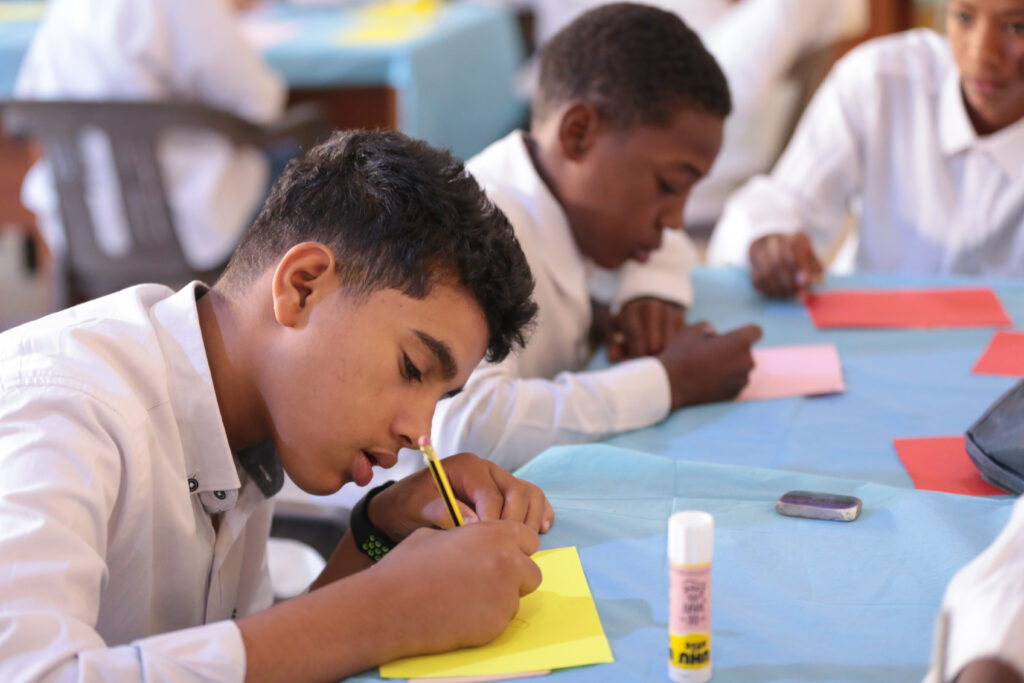
“What attracted me the most in the program were the exciting games that aimed to instill the spirit of cooperation and choosing someone to rely on and help when needed. I used to aspire to be an officer in the army, but after the program, I aspire to be a captain pilot, traveling the world, discovering new places every day, and learning about different civilizations and countries. I learned that if I have a goal, I should never give up until I achieve it, and I should respect others and help them. I became closer to all my classmates and formed new strong friendships” Adds Roken.
As Zamzam Fadel Al-Hanini, a trainer at TDH and social worker circulates the room, she facilitates the flow of ideas with a gentle nudge here, a thought-provoking question there. “The transformation is tangible,” she observes. “With each session, these young individuals are blossoming into thinkers, into doers—into the leaders of tomorrow.”
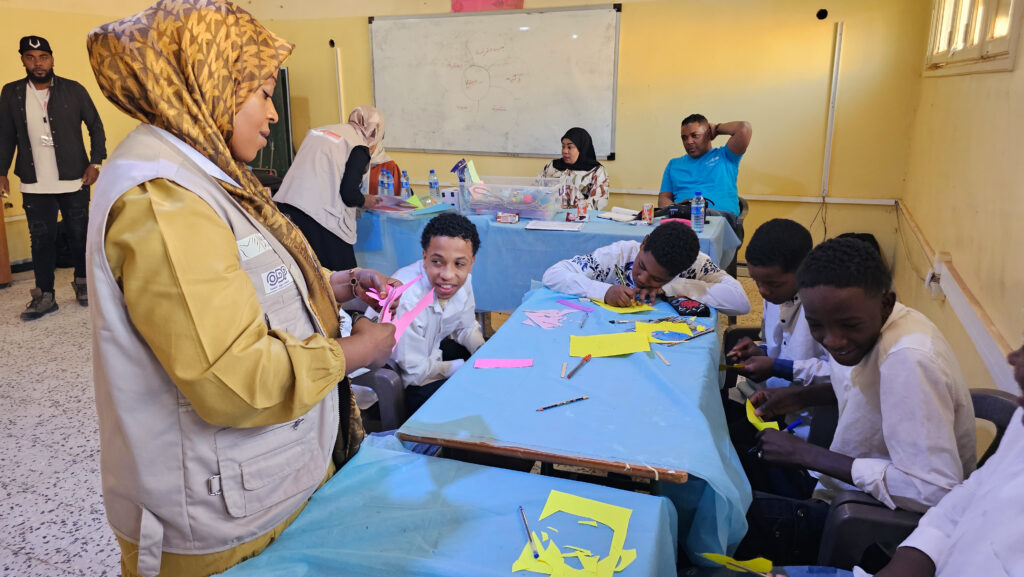
This Life Skills program isn’t typical education—it’s a vibrant and engaging journey. “Every day,” Zamzam continues, “brings a new group of students, each lesson a discovery of untapped potential.” The program’s design is deliberate, a blend of activities, stories, and games crafted to teach life skills in a way that resonates with the students, ensuring these essential skills are not merely learned but become a part of their very being.
The program’s impact is evident, as Shahid concludes, “It taught me to think critically, work with others, stand against bullying, and help people. These aren’t just skills for school; they’re skills for life.”
This program is a collaborative effort spearheaded by UNICEF Libya, in strategic partnership with the Ministry of Local Governance, designed to bolster communities and provide individuals, particularly those facing adversity, with the opportunities and support needed to flourish.
“Our goal was to tackle issues impacting Residents daily lives. We crafted robust plans with UNICEF’s expertise, with support from the European Union, focusing on empowering youth for their energy and ideas. The Life Skills program was our investment in their potential to foster cooperation, build capacity, and promote social harmony, equipped with dedicated spaces and expert trainers for assured success.” Shares Ibrahim Al-Khalil Salim, Chairman of the Ghat Municipal Council.
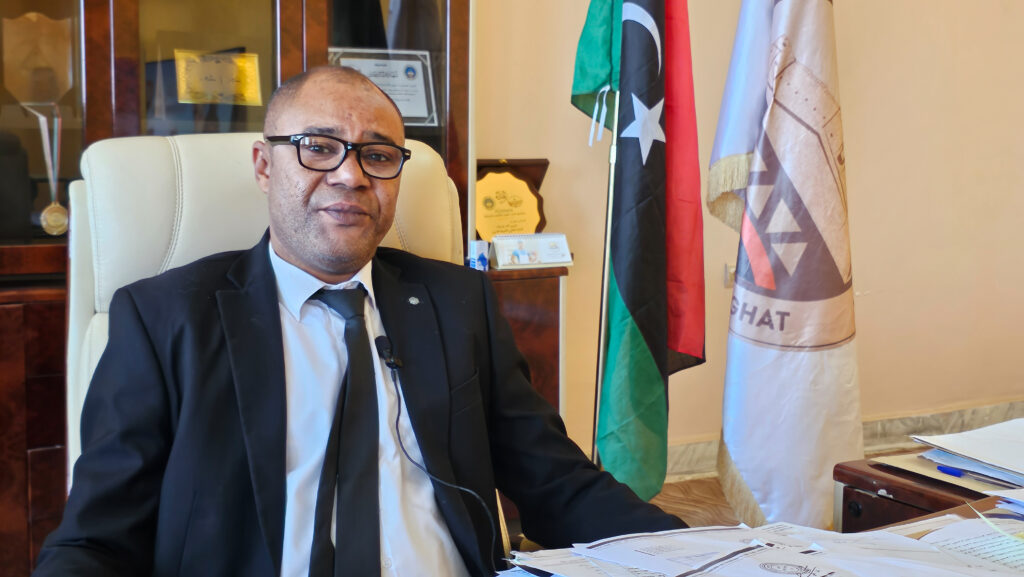
The Life Skills program is a part of UNICEF Libya’s broader initiative, funded by the EU’s Baladiyati, aimed at empowering the youth of Libya. By instilling critical life skills such as care for self, effective communication, and critical thinking, the program equips adolescents to face the complexities of the modern world with confidence and resilience. The program is expected to be implemented in five municipalities in the southern areas of Ghat, Ubari, Sebha, Al-Kufra and Brak, benefiting 3500 adolescents and youth.
The Life Skills program, a key component of the “Baladiyati” initiative, is particularly vital considering the findings of UNICEF’s employability study, which was funded by the European Union. This study highlights a significant gap in the development of personal, social, and life skills, as well as career planning and transition support for young people in the south of Libya. Recognizing these challenges, the Life Skills program is strategically designed to meet these needs, providing the youth in Ghat with the necessary tools to bridge the gap from education to employment, thereby reinforcing their ability to contribute effectively to their communities and the wider workforce.

